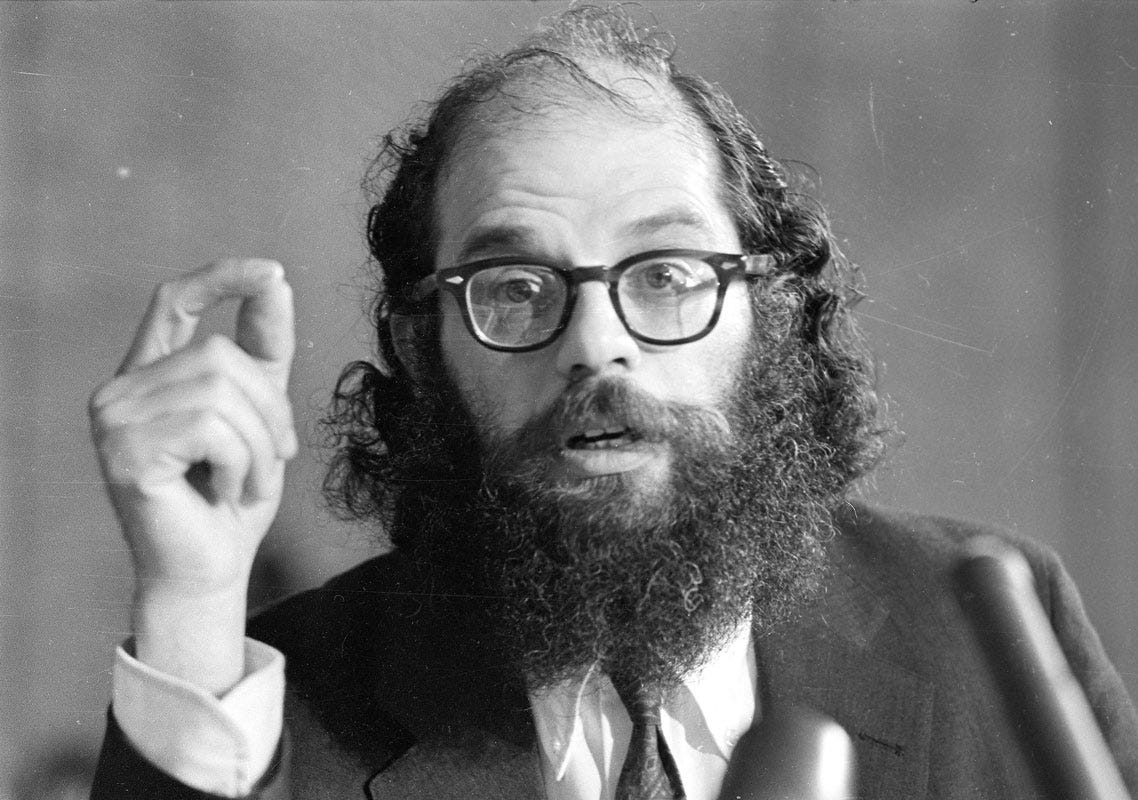Allen Ginsberg: “First thought, best thought.”
Go with the first idea that pops into your head.
Poet Allen Ginsberg: “First thought, best thought.”
His poetics was shaped by an adolescent encounter with Williams and Pound, their rejection of what he called the metronomic ba-dum, ba-dum, ba-dum of iambic pentameter for the flexible, complex rhythms of everyday speech. As informed by his later discovery of Buddhist meditation practice, this recognition led to the idea of poetry as breath, an emanation of the body as much as of the mind (one reason he gave, and attended, so many readings). Indeed, Buddhism taught him to eschew rationality in favor of ''ordinary'' or ''spontaneous'' mind, the vast sea of consciousness upon which our concepts and categories, anxieties and prohibitions, float like so much junk. Hence Ginsberg's compositional method, the moment-by-moment transcription of thoughts and images as they passed across his mind. (The thousand-odd lines of ''Kaddish'' poured forth in one 40-hour session.) ''First thought, best thought'' was his governing principle: no heed to the high-modernist idea of poem as patiently constructed artifact, but an equally strenuous discipline, for it was only with hours of daily meditation that he maintained his wide-open path from mind to breath.



